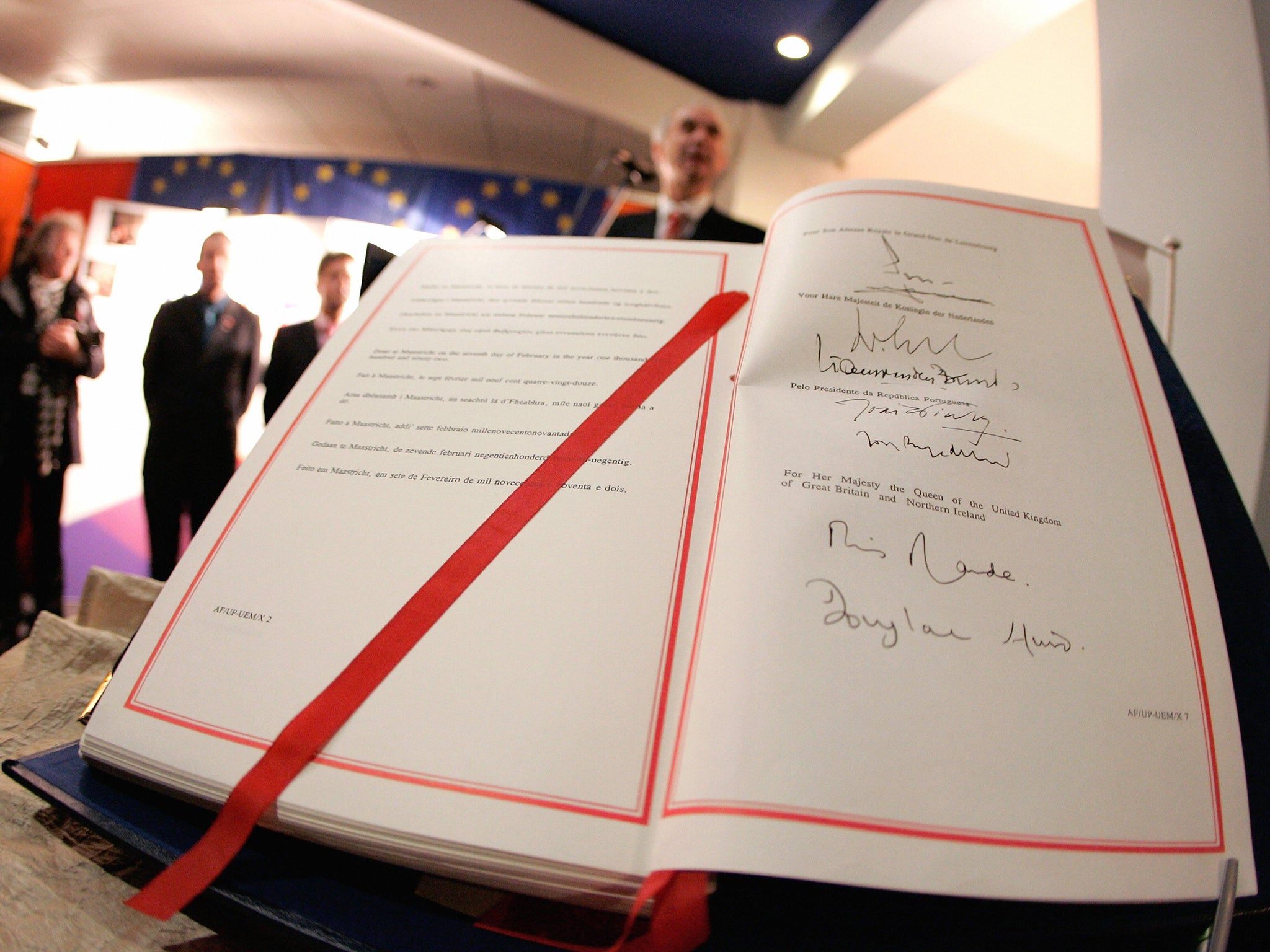How the Maastricht Treaty sowed the seeds of discontent that led to Brexit
In the third of our five-part series on Britain’s often reluctant role on the European stage, Andrew Grice explains how the unravelling of Sir John Major’s initial victory created a political shift 23 years in the making

Rarely in British politics has triumph turned so quickly to disaster. Sir John Major was hailed as a conquering hero by Eurosceptic MPs and newspapers for winning crucial opt-outs for the UK when European leaders took a decisive step towards political union in December 1991.
Their summit in the Dutch city of Maastricht was a landmark one for both Britain and the rest of Europe. The 12 leaders at the time agreed to turn the European Community into the European Union, whose powerful symbol would be a single currency. But the integrationist leap forward risked leaving Britain in the slow lane, and arguably sowed the seeds for the 2016 referendum decision to leave the bloc.
I was at the summit, and can attest that Sir John’s triumph was not the usual spin by a national leader to his domestic audience. The mild-mannered Tory prime minister never actually uttered the words “game, set and match” attributed to him by me and the other journalists in Maastricht. They came from one of his aides. Characteristically, Sir John merely called the outcome “very satisfactory”.
Subscribe to Independent Premium to bookmark this article
Want to bookmark your favourite articles and stories to read or reference later? Start your Independent Premium subscription today.
Join our commenting forum
Join thought-provoking conversations, follow other Independent readers and see their replies